

NASA & ME
MARCIA K. CULP
Solar System Ambassador/Citizen Scientist/Planetary Defender
During childhood, I was entertained by watching weekly episodes of The Jetsons, Lost in Space and Star Trek and since that time, I've added Star Wars, Battlestar Galactica and Mandalorian to my library of outer space favorites. My curiosity about the universe has grown into a deeper appreciation of its vastness and the possibilities that lie ahead.
Although I am an artist and designer who majored in Business Administration & Marketing, I am intrigued by the science of space exploration. Having been selected by NASA/JPL
to serve as a volunteer Solar System Ambassador and previously, an
OSIRIS-REx Ambassador was and still is, a great honor.
I regularly participate in webinars, briefings, events and professional development efforts to communicate the science and excitement of NASA's space exploration, its missions and discoveries with people in the community. My voice gives me a platform to
make a vital contribution to missions and offers opportunities to
share diverse ideas and shape unique perspectives.

CELEBRATING THE
DIVERSE & INNOVATIVE
TEAM AT NASA!
IT HAPPENED LIKE THIS...
My connection to NASA began in March of 2016, when I responded to a nationwide "Call for Artists" to create asteroid-inspired works of art. The art was to be submitted to NASA for the "OSIRIS-REx Mission," the first U.S. mission to return samples from an asteroid to Earth. The mission addressed multiple NASA Solar System Exploration objectives through the "We The Explorers" program. As a contributing artist, I submitted two works of art in a digital format. Both were accepted and then installed
onto a microchip (like the one pictured below), along with art from other artists and citizens in the U.S. The
microchip eventually became a permanent part of the Outer Space Digital Art Gallery aboard
NASA’s spacecraft, OSIRIS-REx, commemorating the First U.S. Sample Return Mission
to the asteroid, Bennu, on its seven-year journey, concluding in 2023.
In September of 2016, my and husband, Lance traveled to Kennedy Space Center in Cape Canaveral, FL to witness the launch of the spacecraft, OSIRIS-REx, have lunch with an astronaut, Don Thomas, meet the first boy in history, (Michael Puzio) to name an asteroid, "Bennu," attend a presentation by Bill Nye, "The Science Guy" and tour the center and NASA grounds. A few years
later, I was selected to serve as an OSIRIS-REx Ambassador and eventually a Solar System Ambassador.
This historic event inspired me to share my adventure, as a contributing writer for the
"American Portrait," a national storytelling project and docuseries. The project allows
stories to be told, giving a glimpse into the lives of people in the American story.
"American Portrait"
"I Was Raised to Believe..."
An American Story
published by PBS, Public Broadcasting System
TO VIEW THE STORY, CLICK ON THIS LINK
https://www.pbs.org/.../marcia-c-holland-oh-i-was-raised...
Living and Loving This Out-of-the-Box Experience!

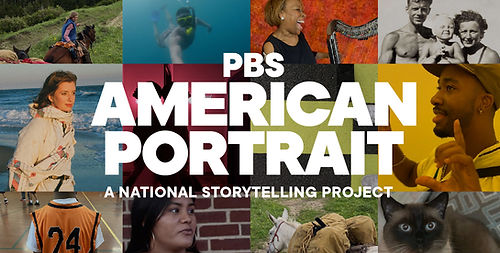

ART & MY
OUT-OF-THIS-WORLD
EXPERIENCE WITH NASA

FORMER
NASA
OSIRIS-REx Ambassador
MARCIA K. CULP
I created artwork to be included on the OSIRIS-REx mission to the asteroid Bennu. My inspiration was the
two shapes of asteroids; I appropriately named the two commemorative pieces of art:
NASA OSIRIS-REx: "Asteroid I" and NASA OSIRIS-REx: "Asteroid II"

.jpeg)
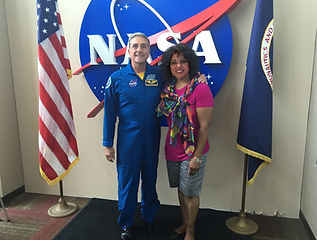
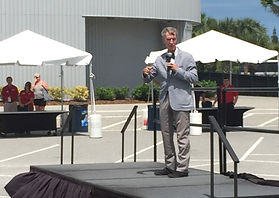

PREPARING OSIRIS-REx FOR THE MISSION AND THE INSTALLATION OF
ARTWORK TO ITS GALLERY
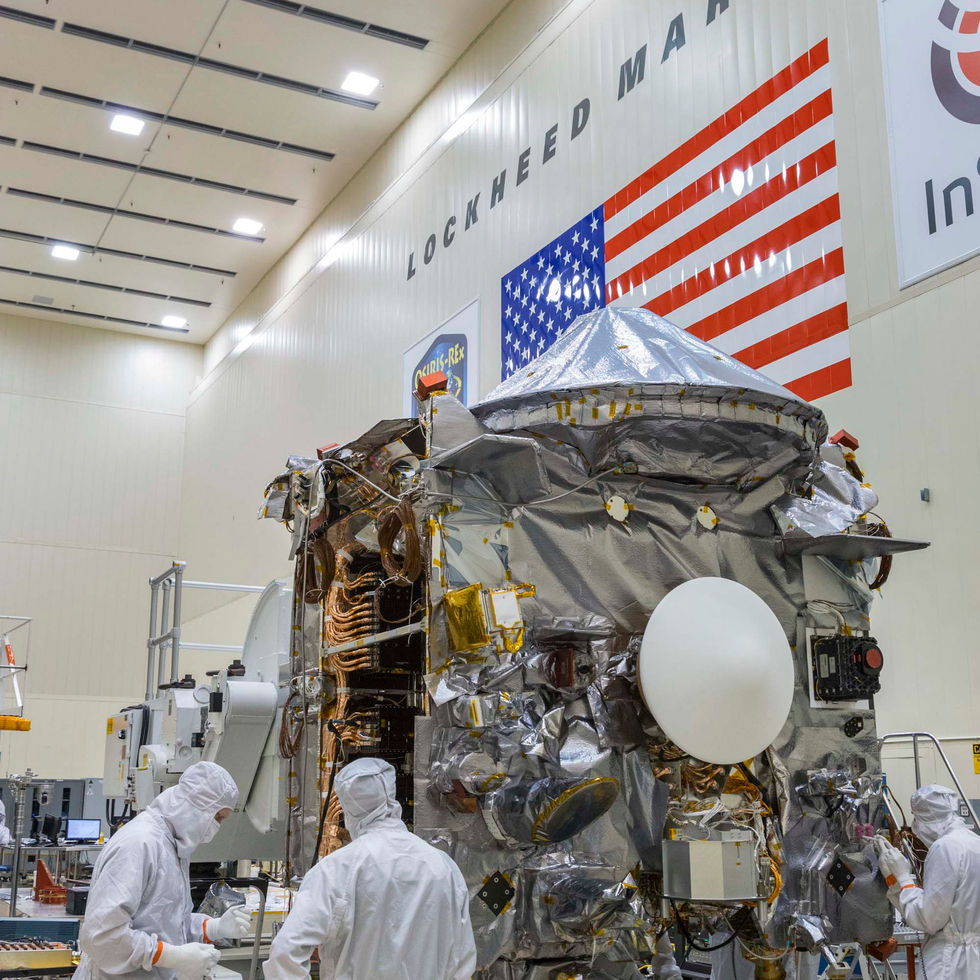
My Digital Art Is In The "Outer Space Gallery" Aboard NASA's Solar-Powered Spacecraft, OSIRIS-REx,
And Will Remain In Orbit For Millennia
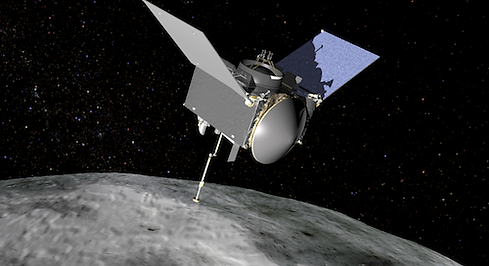


"NASA OSIRIS-REx Asteroid I"
Artwork by Marcia K. Culp, 2016
Inspired by the Potato-like shape of Asteroids
Graphic Design: Digital Illustration, Adobe Illustrator
"NASA OSIRIS-REx Asteroid II"
Artwork by Marcia K. Culp, 2016
Inspired by the Star-like shape of Asteroids
Graphic Design: Digital Illustration, Adobe Illustrator

NASA
National Aeronautics and Space Association
Key Event Dates



NASA National Aeronautics and Space Association
for Jet Propulsion Laboratory at the California Institute of Technology
Pasadena, CA
"Professional Development" Teleconferences
Mission/Science Briefings, Webinars & Trainings
Solar System Ambassador 2022
NASA National Aeronautics and Space Association
for Jet Propulsion Laboratory at the California Institute of Technology
Pasadena, CA
Solar System Ambassador 2021
NASA National Aeronautics and Space Association
for Jet Propulsion Laboratory at the California Institute of Technology
Pasadena, CA
Infographics Designer 2021
NASA National Aeronautics and Space Association
OSIRIS-REx First U.S. Sample Return Mission to the Asteroid "Bennu"
OSIRIS-REx Ambassador 2020
NASA National Aeronautics and Space Association
Citizen Scientist 2020
Kennedy Space Center
"Lunch with an Astronaut" Featuring Astronaut, Don Thomas
Cape Canaveral, FL
Luncheon Guest 2016
Kennedy Space Center
Launch Observation of NASA National Aeronautics and Space Association's
OSIRIS-REx on its First U.S. Asteroid Sample Return Mission to the Asteroid "Bennu"
Cape Canaveral, FL
Spacecraft Launch Guest 2016
NASA National Aeronautics and Space Association
OSIRIS-REx First U.S. Sample Return Mission to the Asteroid "Bennu"
Contributing Artist to the Spacecraft OSIRIS-REx's Digital Gallery 2016

NASA
National Aeronautics and Space Association
Interesting NASA Links To Explore...
We Are NASA
https://www.youtube.com/watch?v=WeA7edXsU40
Internships
Solar System Ambassadors
https://solarsystem.nasa.gov/solar-system-ambassadors/events/
NASA EXPRESS Newsletter Sign-up
https://visitor.r20.constantcontact.com/manage/optin...
Kennedy Space Center
https://www.kennedyspacecenter.com/
OSIRIS-REx Mission
https://www.asteroidmission.org/
Solar System Exploration
NASA eClips
https://nasaeclips.arc.nasa.gov/
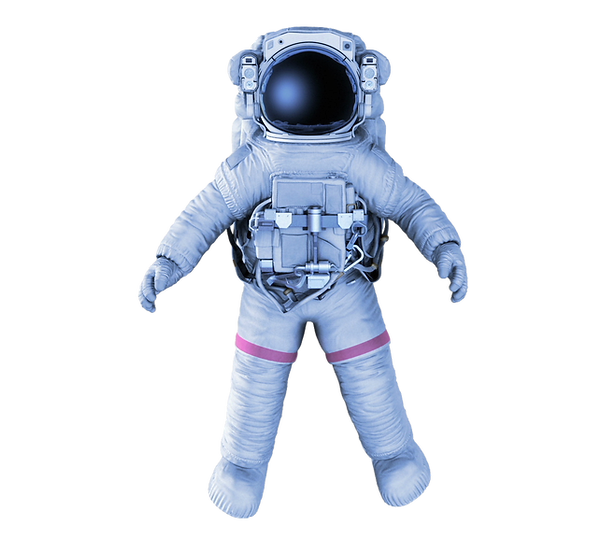
Since 2021
NASA
Solar System Ambassador
MARCIA K. CULP
NASA's federally funded Jet Propulsion Laboratory's Solar System Ambassadors Program is managed by the Jet Propulsion Laboratory at the
California Institute of Technology in Pasadena, CA
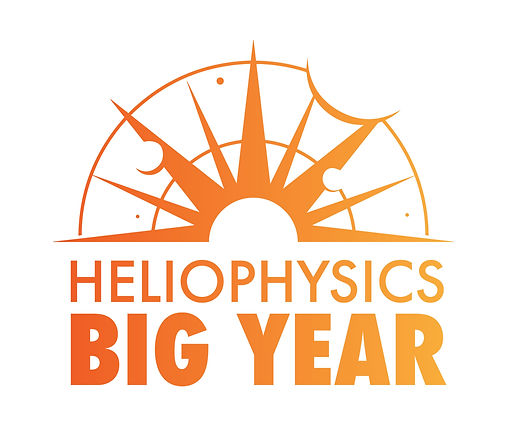
HELIOPHYSICS BIG YEAR
Annular Solar Eclipse, October 14, 2023
Total Solar Eclipse, April 8, 2024
The Parker Probe, December 24, 2024
Total Solar Eclipse 2024
Commemorative Poster
"Solar Eclipse of the Heart"
A collaborative event from the campus of University of Southern Indiana USI and Northwood, OH

Event Collaborator
Jennifer Gunderson
https://www.jennifergunderson.com/Eclipse-2024-Northwood-Ohio/n-WpLhrW/Eclipse-2024-Composite
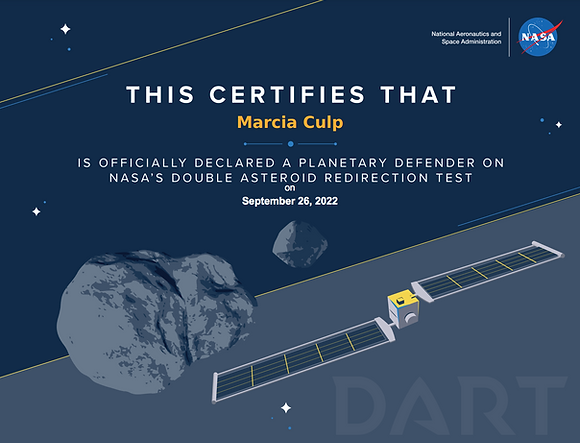



2022
NASA
Planetary Defender
MARCIA K. CULP
After watching the LIVE broadcast of and briefing, I supported the DART mission by watching the LIVE broadcast of the impact and becoming a “Planetary Defender.” After taking a quiz on asteroids, the DART mission and planetary defense, I earned a certificate and badge to add to my NASA/JPL and STEM/STEAM portfolio. The DART mission is
NASA's first-ever space mission to demonstrate asteroid deflection by kinetic impactor technology,
causing an asteroid to adjust its speed and path.
NASA’s Double Asteroid Redirection Test, or DART, is the world’s first full-scale planetary defense test, demonstrating one method of asteroid deflection technology. As part of NASA’s larger planetary defense strategy, the DART mission
will prove that a spacecraft can autonomously navigate to a target asteroid and intentionally collide with it,
a method of asteroid deflection known as kinetic impact.
DART will simultaneously test new technologies and provide important data to enhance our modeling and predictive capabilities and help us better prepare for an asteroid that might pose a threat to Earth, should one be discovered.
True to its name, DART is a focused spacecraft, designed to direct itself to impact an asteroid at roughly
14,000 miles per hour thanks to the work of NASA's DART Mission Team and
Johns Hopkins University Applied Physics Lab.
After impact, the investigation team will measure how much the asteroid is deflected using telescopes on Earth.
This mission also engages the international planetary science community in many ways, embracing
worldwide cooperation to address the global issue of planetary defense.


2022
NASA
The International Observe The Moon Night
ANNUAL EVENT
International Observe the Moon Night is an annual world-wide public engagement program that encourages observation, appreciation, and understanding of our Moon and its connection to NASA planetary science and exploration.
Everyone on Earth is invited to join the celebration by hosting or attending an event.
For more information about International Observe the Moon Night
and how to get involved, visit

2023
NASA
EUROPA CLIPPER
FIVE AND A HALF YEAR MISSION
NASA's Europa Clipper spacecraft will perform dozens of close flybys of Jupiter’s moon Europa, gathering detailed measurements to investigate whether the moon could have conditions suitable for life. Europa Clipper is not a life detection mission – its main science goal is to determine whether there are places below Europa’s surface that could support life. The spacecraft, in orbit around Jupiter, will make nearly 50 flybys of Europa at closest-approach altitudes as low as 16 miles (25 kilometers) above the surface, soaring over a different location during each flyby to scan nearly the entire moon.
Europa Clipper will launch in October 2024 and will follow a Mars-Earth Gravity Assist (MEGA) trajectory.
The spacecraft will travel for five and half years and arrive at Jupiter in April 2030.
For more information about The Europa Mission
and how to get involved, visit

NASA Goddard Presents
An Immersive "Thermonuclear"
Art Experience
NASA | Thermonuclear Art – The Sun In Ultra-HD (4K)
Pull up a comfortable chair, grab your favorite snack or just sit back and relax.
Click to "UNMUTE" the sound on the video below. Read, watch, listen and learn
more about the out-of-this-world, 30 minute journey into space, set to music.
A new meaning for the word "Sundance!"




THE DANCE OF THE SUN
It’s always shining, always ablaze with light and energy that drive weather, biology and more. In addition to keeping life alive on Earth, the sun also sends out a constant flow of particles called the solar wind, and it occasionally erupts with giant clouds of solar material, called coronal mass ejections, or explosions of X-rays called solar flares. These events can rattle our space environment out to the very edges of our solar system. In space, NASA’s Solar Dynamics Observatory, or SDO, keeps an eye on our nearest star 24/7. SDO captures images of the sun in 10 different wavelengths, each of which helps highlight a different temperature of solar material.
In this video, we experience SDO images of the sun in unprecedented detail. Presented in ultra-high definition,
the video presents the dance of the ultra-hot material on our life-giving star in extraordinary detail,
offering an intimate view of the grand forces of the solar system.
Credit: NASA's Goddard Space Flight Center.
This video is public domain and can be downloaded at:
http://svs.gsfc.nasa.gov/12034
Find NASA Goddard Space Flight Center on Facebook:
http://www.facebook.com/NASA.GSFC
Or find us on Twitter:
http://twitter.com/NASAGoddard
Music tracks in the order they appear from the album DEEP VENTURE:
"Northern Stargazer" "Negative Thermal Expansion"
"Photophore" "Osedax" "Retroreflector"
All tracks written and produced by Lars Leonhard
ENJOY THE SUNSHINE!



PRESS RELEASE


_____
EMAIL YOUR REQUEST
TO BOOK
• Consultations
• Art Commissions
• Training Sessions
• Collaborations
• Mentorships
• Speaking Engagements
• Immersive Creativity Workshops














